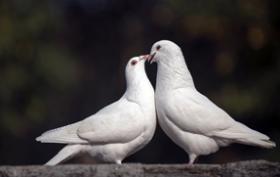
“For one human being to love another, that perhaps is the most difficult task of all” (Rilke)
Behind my clients’ issues when coming into therapy is the paradox of Relationship: we are biologically created to live with one another, and yet relationships very often bring pain and distress. The fact that they can also bring joy, companionship and even love is the reason we go on trying. But what to do when things get stuck? Invariably couples clash when each partner feels his/her needs or feelings are being disregarded; communication breaks down and conflict, or the avoidance of conflict, starts to undermine trust. Partners feel hurt, wronged and angry and they don’t know how to change (or change their partner).
As an important first step in learning how to manage difference or potential conflict, I recommend that my clients do a Body, Feelings, Mind check – we have to learn what’s broken before we can fix it. This means getting to know what is going on inside us when we are ‘triggered’ or upset by something our partner has done. We take stock of ourselves by taking time out from the situation, and observing mindfully what is going on
We then need to calm our system down. We have gone into a ‘fight/flight’ response: even over a ‘minor’ situation, we are actually programmed to react like this from our days in the wild, thousands of years ago, when we felt under threat. Although we are not literally in fear of our life, our brain interprets discord as if we are. It is a response for which we have been primed for thousands of years, but this reaction does not serve us any more and we need to learn to over-ride it. It takes up to 20 minutes for the response to calm down in the system, providing we are not obsessing about the conflict but distracting ourselves.
When we come back together again, we can talk to each other without blame or criticism. We don’t try to win the argument – we may win the battle but eventually we will lose the war this way. Each partner is more able to listen to the other without defending their own viewpoint or rejecting that of their partner. If we truly follow this, very often a third way will open up that we had not thought of before, when all we could see was ‘your way’ versus ‘my way’. We start to become creative in problem solving and we begin to develop empathy for each other, which is the seed of real love.
“For one human being to love another, that perhaps is the most difficult task of all” (Rilke)
Behind my clients’ issues when coming into therapy is the paradox of Relationship: we are biologically created to live with one another, and yet relationships very often bring pain and distress. The fact that they can also bring joy, companionship and even love is the reason we go on trying. But what to do when things get stuck? Invariably couples clash when each partner feels his/her needs or feelings are being disregarded; communication breaks down and conflict, or the avoidance of conflict, starts to undermine trust. Partners feel hurt, wronged and angry and they don’t know how to change (or change their partner).
As conflicts become less overwhelming, the relationship can start to feel safer, trust can build and intimacy blossom. I have seen this happen with many clients’ relationships over the years. Take heart, change doesn’t happen overnight, it takes several months to shift an old pattern of behaviour, but with a commitment to doing things differently this can happen.